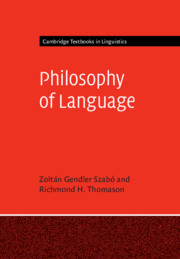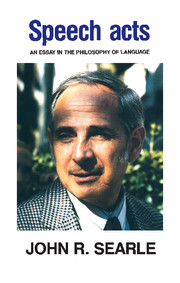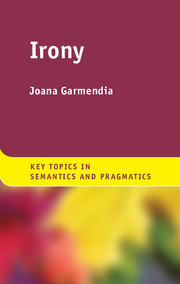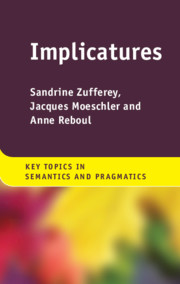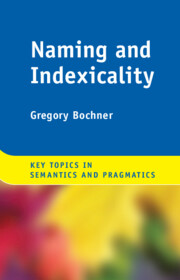Philosophy of Language
Part of Cambridge Textbooks in Linguistics
- Authors:
- Zoltán Gendler Szabó, Yale University, Connecticut
- Richmond H. Thomason, University of Michigan, Ann Arbor
- Date Published: November 2018
- availability: Temporarily unavailable - available from TBC
- format: Hardback
- isbn: 9781107096646
Hardback
Other available formats:
Paperback, eBook
Looking for an inspection copy?
This title is not currently available for inspection. However, if you are interested in the title for your course we can consider offering an inspection copy. To register your interest please contact [email protected] providing details of the course you are teaching.
-
This unique textbook introduces linguists to key issues in the philosophy of language. Accessible to students who have taken only a single course in linguistics, yet sophisticated enough to be used at the graduate level, the book provides an overview of the central issues in philosophy of language, a key topic in educating the next generation of researchers in semantics and pragmatics. Thoroughly grounded in contemporary linguistic theory, the book focus on the core foundational and philosophical issues in semantics and pragmatics, richly illustrated with historical case studies to show how linguistic questions are related to philosophical problems in areas such as metaphysics, epistemology, and ethics. Students are introduced in Part I to the issues at the core of semantics, including compositionality, reference and intentionality. Part II looks at pragmatics: context, conversational update, implicature and speech acts; whilst Part III discusses foundational questions about meaning. The book will encourage future collaboration and development between philosophy of language and linguistics.
Read more- The first philosophy of language textbook on the market to cater to both linguists and philosophers
- Enables linguistics and philosophers to identify topics of shared concern and areas for collaboration
- Provides a comprehensive glossary of terms, void of unnecessary jargon
- Includes a complimentary website of additional resources including handouts for in class use and discussion questions
Reviews & endorsements
'This rich textbook fills an important need. It will provide indispensable background in philosophy of language for anyone interested in the modern linguistic study of meaning. Linguists and philosophers alike will benefit from Szabó and Thomason's skilled guide to foundational issues.' Kai von Fintel, Massachusetts Institute of Technology
Customer reviews
Not yet reviewed
Be the first to review
Review was not posted due to profanity
×Product details
- Date Published: November 2018
- format: Hardback
- isbn: 9781107096646
- length: 338 pages
- dimensions: 253 x 178 x 24 mm
- weight: 0.76kg
- contains: 1 b/w illus.
- availability: Temporarily unavailable - available from TBC
Table of Contents
Introduction
Part I. Philosophy of Semantics:
1. Frege and Tarski
2. Compositionality
3. Reference and quantification
4. Tense and modality
5. Intentionality
Part II. Philosophy of Pragmatics:
6. Austin and Grice
7. Context and content
8. Common ground and conversational update
9. Implicature and figurative speech
10. Assertion and other speech acts
Part III. Meaning as a Philosophical Problem:
11. Meaning and use
12. Externalism and internalism
13. Paradox and vagueness.-
General Resources
Find resources associated with this title
Type Name Unlocked * Format Size Showing of
This title is supported by one or more locked resources. Access to locked resources is granted exclusively by Cambridge University Press to lecturers whose faculty status has been verified. To gain access to locked resources, lecturers should sign in to or register for a Cambridge user account.
Please use locked resources responsibly and exercise your professional discretion when choosing how you share these materials with your students. Other lecturers may wish to use locked resources for assessment purposes and their usefulness is undermined when the source files (for example, solution manuals or test banks) are shared online or via social networks.
Supplementary resources are subject to copyright. Lecturers are permitted to view, print or download these resources for use in their teaching, but may not change them or use them for commercial gain.
If you are having problems accessing these resources please contact [email protected].
Sorry, this resource is locked
Please register or sign in to request access. If you are having problems accessing these resources please email [email protected]
Register Sign in» Proceed
You are now leaving the Cambridge University Press website. Your eBook purchase and download will be completed by our partner www.ebooks.com. Please see the permission section of the www.ebooks.com catalogue page for details of the print & copy limits on our eBooks.
Continue ×Are you sure you want to delete your account?
This cannot be undone.
Thank you for your feedback which will help us improve our service.
If you requested a response, we will make sure to get back to you shortly.
×
